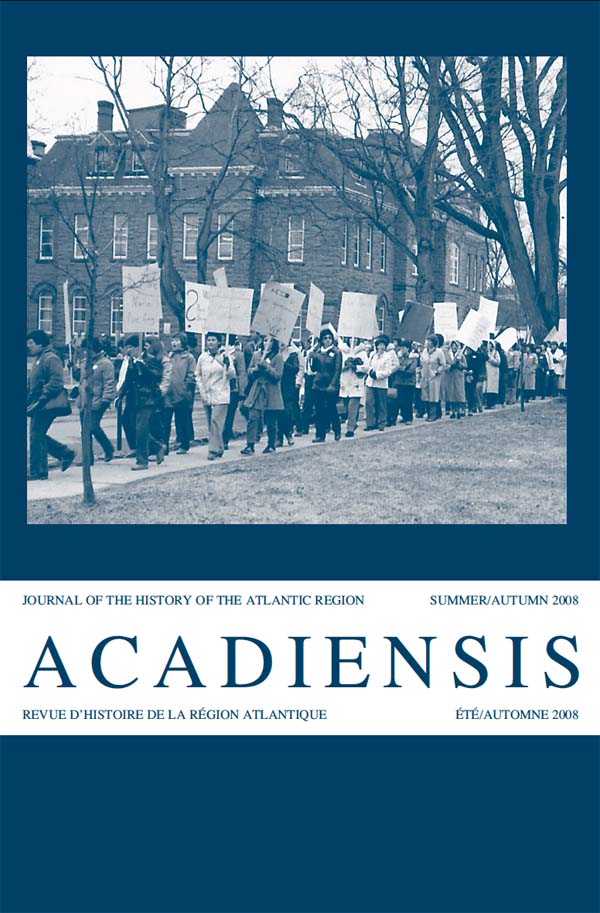Abstract
The controversy over milk pasteurization in Saint John during the 1925 New Brunswick election mirrored wider debates over the place of government in citizens’ lives as well as the role of science and technology in maintaining a viable dairy industry. Fought on these political and economic grounds, the debate centred on what constituted "natural" milk. While most farmers opposed pasteurization as too expensive, their acceptance of other technological and scientific alternatives to pasteurization, which focused on improving cow and barn hygiene, reveal that farmers did not oppose modernizing or progressive reforms. Résumé La controverse entourant la pasteurisation du lait à Saint John au cours de la campagne électorale de 1925 au Nouveau-Brunswick était le reflet de débats plus larges sur la place du gouvernement dans la vie des citoyens, ainsi que sur le rôle de la science et de la technologie dans le maintien d’une industrie laitière viable. Le débat, fondé sur ces questions politiques et économiques, s’articulait autour de ce qui constituait du lait « naturel ». Même si la plupart des agriculteurs s’opposaient à la pasteurisation, la jugeant trop coûteuse, leur acceptation d’autres options technologiques et scientifiques que la pasteurisation, axées sur l’amélioration de l’hygiène des vaches et des étables, révèle que les agriculteurs n’étaient pas opposés à la modernisation ou aux réformes progressistes.Copyright for articles published in this journal is retained by the author(s), with Acadiensis being granted a non-exclusive licence to each and every right in the work throughout the world. After publication of the work, the author(s) shall have the right to self-archive the work and to reprint the work in whole or in part in books authored by or edited by the author(s) without the payment of any fee. In these other formats, however, the author or authors are required to acknowledge the original publication of the work in the pages of the journal. In the case of any requests to reprint the work, Acadiensis will require a standard permission fee -- to be divided equally between the journal and the author. In the event that such requests are received by the author(s), the author(s) shall direct such requests to the journal.

